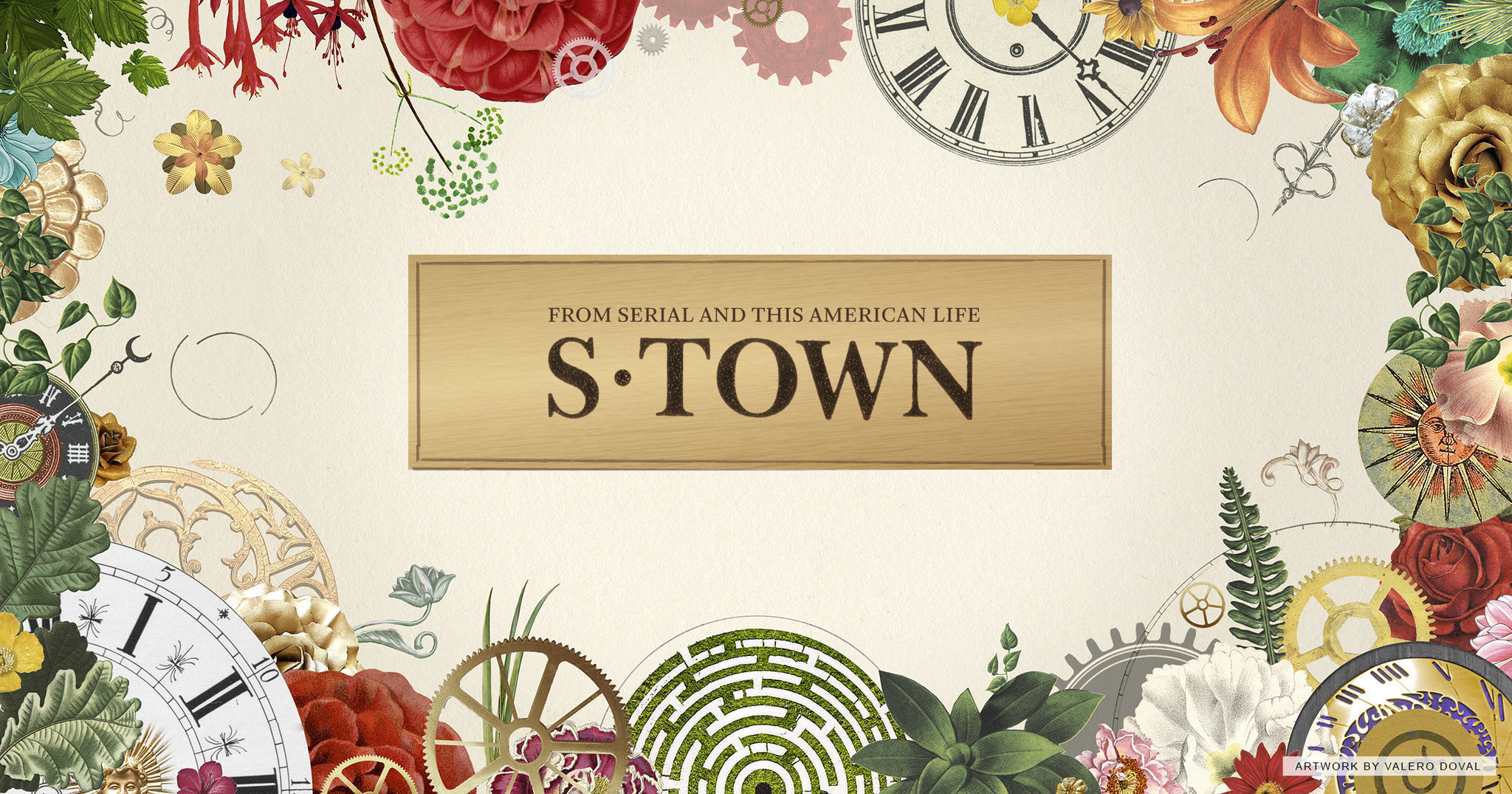Spoiler alert; yes, it’s short for Shit Town. Brian Reed hosts the latest offering from Serial and This American Life, which puts as high a shine on tragedy as I’ve seen, likely transcending the standard set by Serial’s previous two seasons. Its beauty is in the intricate details, taking something that seems so complex as to be unknowable and slowly revealing both the simplistic and remarkable nature of its inner workings. If you intend to listen, know that it is impossible to write about without giving enough away to dull the experience – you may be better off coming back once you’ve finished all 7 chapters. It’s also important to understand that suicide is rarely ever the result of one singular event or cause.
I also want to make potential listeners aware that S-Town, as does this review, contains some jarring discussion of suicide and it may not be the right time to listen for those who feel vulnerable to suicidal ideation. If you or someone you know is having thoughts of self-harm, please reach out to a trained professional. If you are in the US, the National Suicide Hotline number is 1-800-273-8255 . For a Crisis Text Line, text START to 741-741. Peer support for LGBT folks can be found here.
In a word, S-town is alchemy. Reed expertly mixes the mundane and the gut-wrenching, transforming what seems like a scattered mess into gold with a few deft movements. An illuminating story about one man’s search for justice in a harsh environment, Reed lures listeners into an unforgettable exercise in empathy that is absolutely deserving of it’s current viral status. He is at times the crobar, roughly prying into sealed spaces by nightfall, and at others a patient artisan, unwinding each delicate piece for us, his captivated apprentices.
John B. McLemore, a dyspeptic clockmaker whose unwillingness to submit to apathy stages the fight for his life, is introduced after Reed agrees to investigate the apparent cover-up of a murder by his Alabama town, bitingly dubbed “Shit Town.” Over the course of their correspondence, John B’s suicide sharpens the focus on his enigmatic life and the more befuddling aspects of his death. Listening, I felt my eyes were opened to how someone so open and forthright could slip through the cracks. Like those in John B’s life, I felt his brilliance and giving nature fostered belief in his resilience despite the unending barrage of grievances, which were just distracting enough to be disarming. I suspected, but did not accurately anticipate his abrupt demise, despite the obvious precipitation of his troubles into something dangerous.
This is where things got uncomfortable. John B. is dead, no longer able to advocate for himself or maintain control over the narrative. Delving deeper, I did respect that this was done with the qualifiers of John B’s outspoken atheism and belief that nothing after death impacts him, though I would otherwise question whether “trying to understand someone is a worthwhile thing to do” justifies the public outing of a closeted individual – especially when it is done by laying bare personal details, previously treated with discretion.
The podcast itself feels a bit analogous to one particular anecdote, where a relative brusquely mentions slicing John’s nipples to retrieve potentially valuable piercings. His death is considered the final pain, and further mutilation is considered less of an insult than leaving gold in the darkness. What’s done is done, Reed seems to say, and I find myself grateful he’s done it in spite of the unease surrounding how it was done. We are brought along to dig holes in search for gold, but all we discover is empty bottles; a picture of how hollow John’s joys were without a partner to share them with- without country song love, or “azalea love.” This gutting of his story parallels John’s own forays into masochistic practices, begging the closest man in his life to pierce him with tattoo needles to find relief from inner pain. We see a man who feels he is missing a component key to helping him tick, whose gears can no longer turn without it. And yet, as raw a portrayal of anguish as we are given, and as crude as the means may be, this podcast is a gift to all of us. It’s a bold, public autopsy for the education of humanity, to remind us what exists in all of us and should connect us as people and as communities. I cannot recommend it enough.
Through his friends and with Brian Reed as a medium, John B. McLemore has finally received what he sought in life so desperately – to be understood. To be regarded in totality, as vulnerable as possible, and be cherished.
To be loved.

